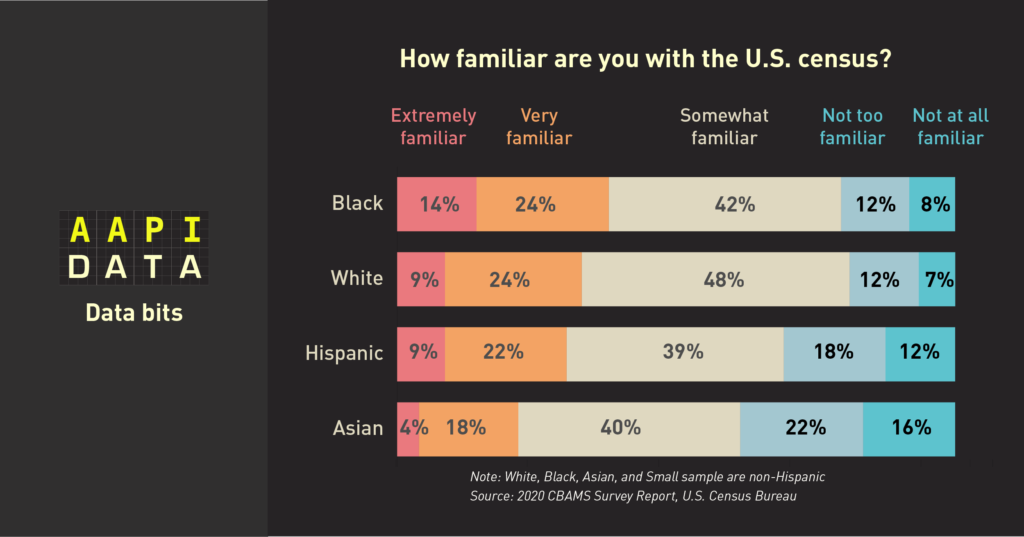
Recently, a new report card from the United States Census Bureau was released, detailing which ethnic communities were either undercounted or overcounted. This coverage error – a measure of disagreement between the census counts and independent estimates of the population size, according to the source – exhibited that there were some significant discrepancies in 2020 data. African Americans, Native Americans, Hispanic and Latino Americans were severely undercounted whereas Asian Americans were overcounted. To be precise, Asian Americans were estimated to be overcounted by 2.62 percent. This means that many were tallied twice.
Advocates and experts from AAPI Data claim that the lack of public and private investments in educating Asian Americans about the census could negatively impact AAPI communities, especially those in larger cities and states saturated with growing Asian populations. In fact, according to the 2020 Census Barriers, Attitudes, and Motivators Study (CBAMS) Survey, “38% of Asian Americans said that they were either ‘not too familiar’ or ‘not at all familiar’ with the Census.” 41% of Asian American survey-takers even believe that their answers to the Census would be used against them.

Considering that many Asian Americans are born from foreign countries and a more limited understanding of the English language compared to many other ethnic minorities, community leaders believe that they need additional outreach and education to provide the Census with accurate answers.
In this case, overcounting may have happened due to university students or homeowners with multiple properties completed the Census in different counties or states. This could skew the data into having people believe that Asian Americans have a socio-economic advantage, when in reality the latter is an ethnic group with the largest wealth gap in the country. The data discrepancy also provides strong implications of Asian Americans being the “model minority” when the trope is actually harmful to Asian communities with a disadvantaged socio-economic history.
A spokesperson from AAPI Data, Howard Shin, stated, “There’s significant portions of the Asian community that are harder to count, that are unaware of the importance of being counted or have language issues.”
So far, only five states have passed laws regarding data collection of major racial groups. Those states are California, Minnesota, North Carolina, Oregon, and New York. Community leaders implore state and federal governments to implement efficient efforts to educate multiple ethnic groups about the Census and about the importance of how this could benefit people of color.
JULIE KIM
ASIA JOURNAL



